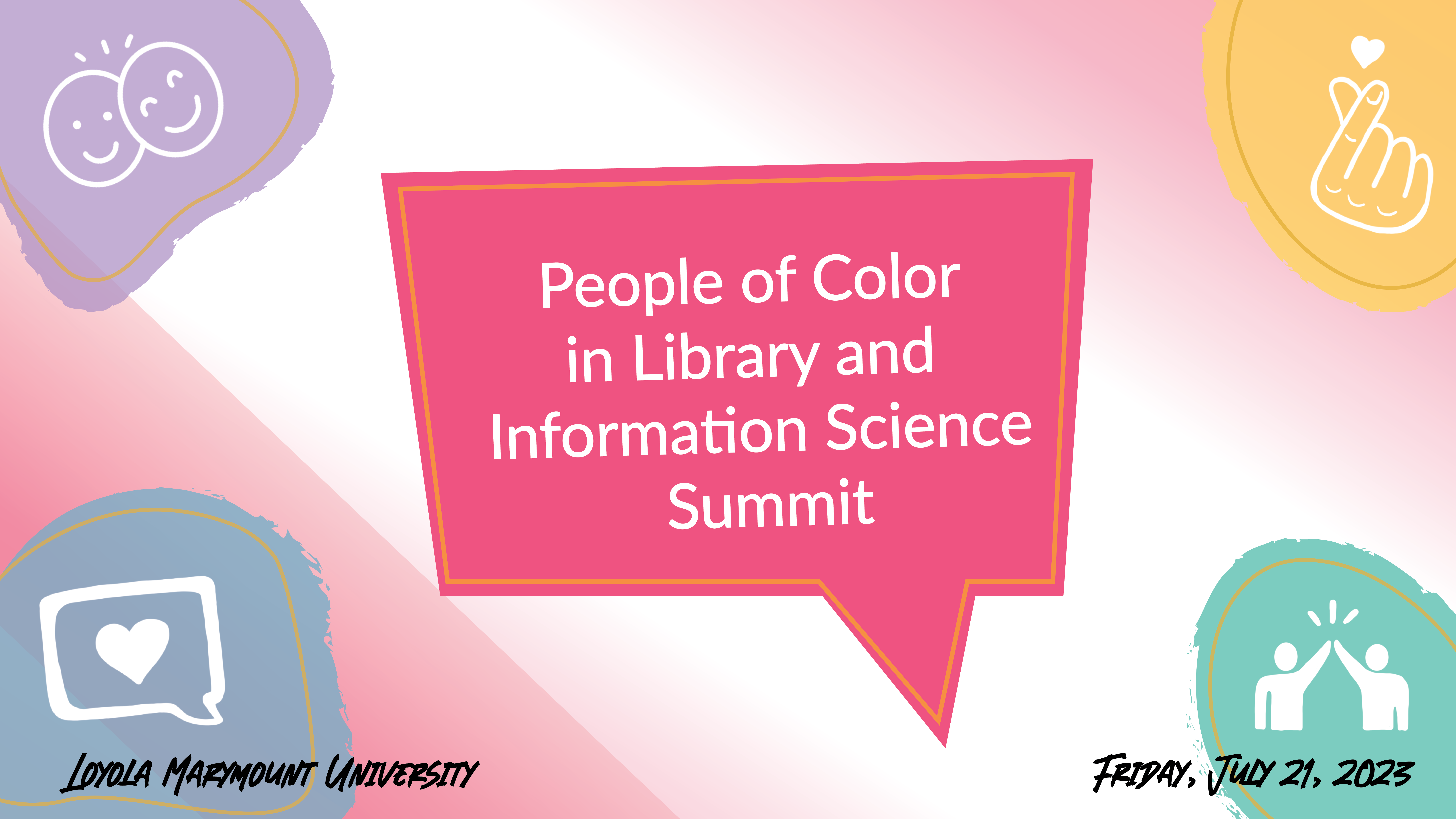
Creating a Digital Safety Community of Care for BIPOC Information Workers
Description
BIPOC are frequently targets for harassment, sometimes merely by virtue of existing, and often specifically to silence our voices and work on issues impacting us. In the digital age, this can be even more targeted and widespread, with online groups aggregating personal and private information, and directing large numbers of bad actors to social media profiles, workplaces, and homes for the purpose of harassment and intimidation. Those of us who specifically work on topics around Critical Race Theory, anti-racism, anti-bigotry, and so forth are particularly vulnerable to digital attacks, and the workplaces that ask us to do this work often are ill- or unprepared to then protect us when that work makes us more visible targets as a result.
While various checklists and tools exist to provide guidance for those dealing with such harassment, it can be particularly difficult in the moment to execute sometimes technically complex procedures when an attack is ongoing. The added stress of such an event can make it difficult to parse out which protective measures to prioritize or which guides are most relevant or trustworthy.
The speakers, who are trained members of the Library Freedom Institute, will suggest a network of community care, where BIPOC information workers with expertise in digital privacy and anti-doxxing measures can be called upon to provide assistance to others preparing for or experiencing digital harassment. During this session, the speakers will provide a summary of recent incidents of harassment of BIPOC information workers and the various methods by which digital information can be used by malicious attackers to target us or our workplaces. The speakers will introduce a step-by-step flowchart that can be used for deciding next steps in protecting one’s physical, emotional, and digital self when faced with a current or potential digital harassment campaign.
Creating a Digital Safety Community of Care for BIPOC Information Workers
BIPOC are frequently targets for harassment, sometimes merely by virtue of existing, and often specifically to silence our voices and work on issues impacting us. In the digital age, this can be even more targeted and widespread, with online groups aggregating personal and private information, and directing large numbers of bad actors to social media profiles, workplaces, and homes for the purpose of harassment and intimidation. Those of us who specifically work on topics around Critical Race Theory, anti-racism, anti-bigotry, and so forth are particularly vulnerable to digital attacks, and the workplaces that ask us to do this work often are ill- or unprepared to then protect us when that work makes us more visible targets as a result.
While various checklists and tools exist to provide guidance for those dealing with such harassment, it can be particularly difficult in the moment to execute sometimes technically complex procedures when an attack is ongoing. The added stress of such an event can make it difficult to parse out which protective measures to prioritize or which guides are most relevant or trustworthy.
The speakers, who are trained members of the Library Freedom Institute, will suggest a network of community care, where BIPOC information workers with expertise in digital privacy and anti-doxxing measures can be called upon to provide assistance to others preparing for or experiencing digital harassment. During this session, the speakers will provide a summary of recent incidents of harassment of BIPOC information workers and the various methods by which digital information can be used by malicious attackers to target us or our workplaces. The speakers will introduce a step-by-step flowchart that can be used for deciding next steps in protecting one’s physical, emotional, and digital self when faced with a current or potential digital harassment campaign.



